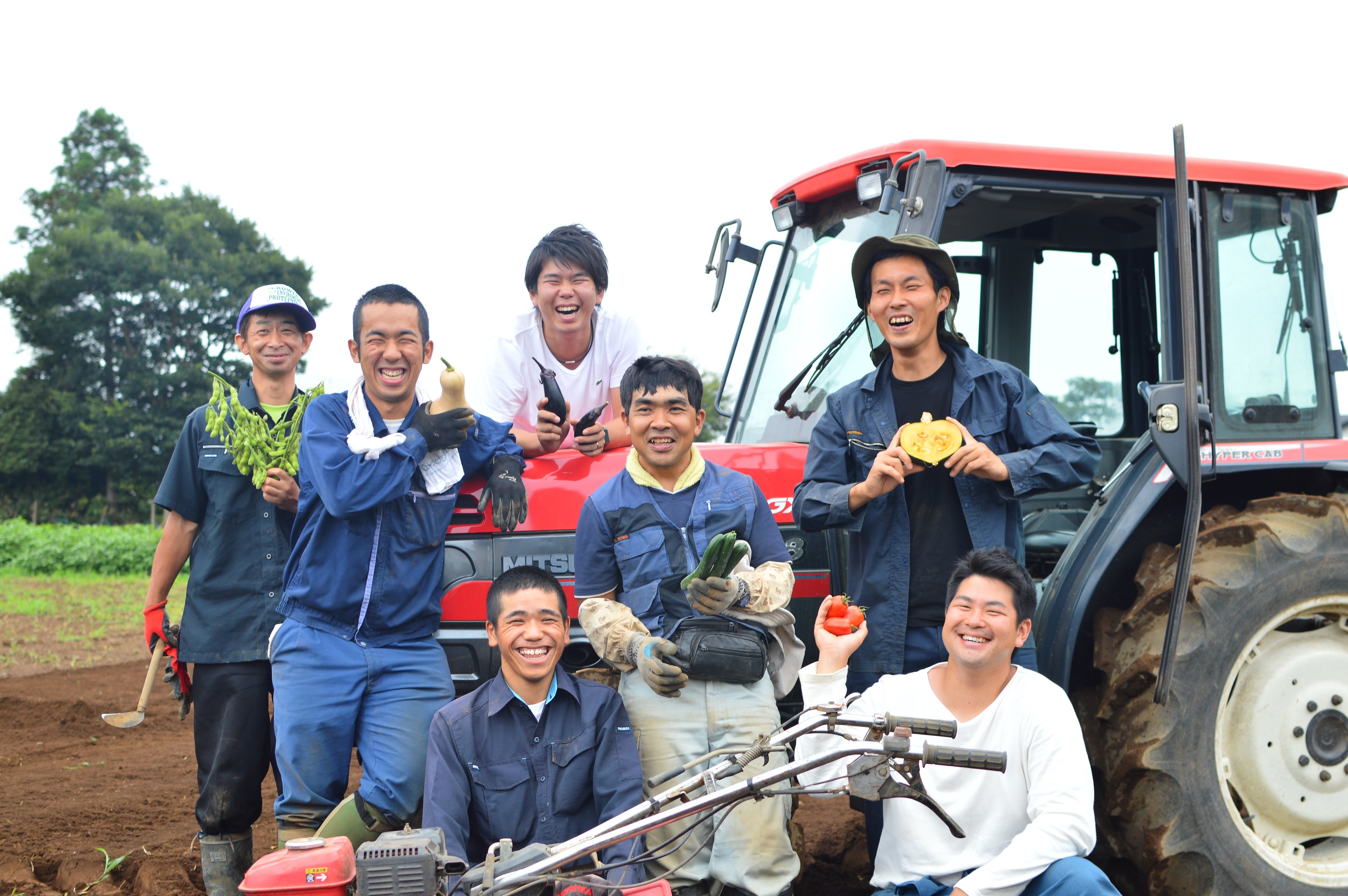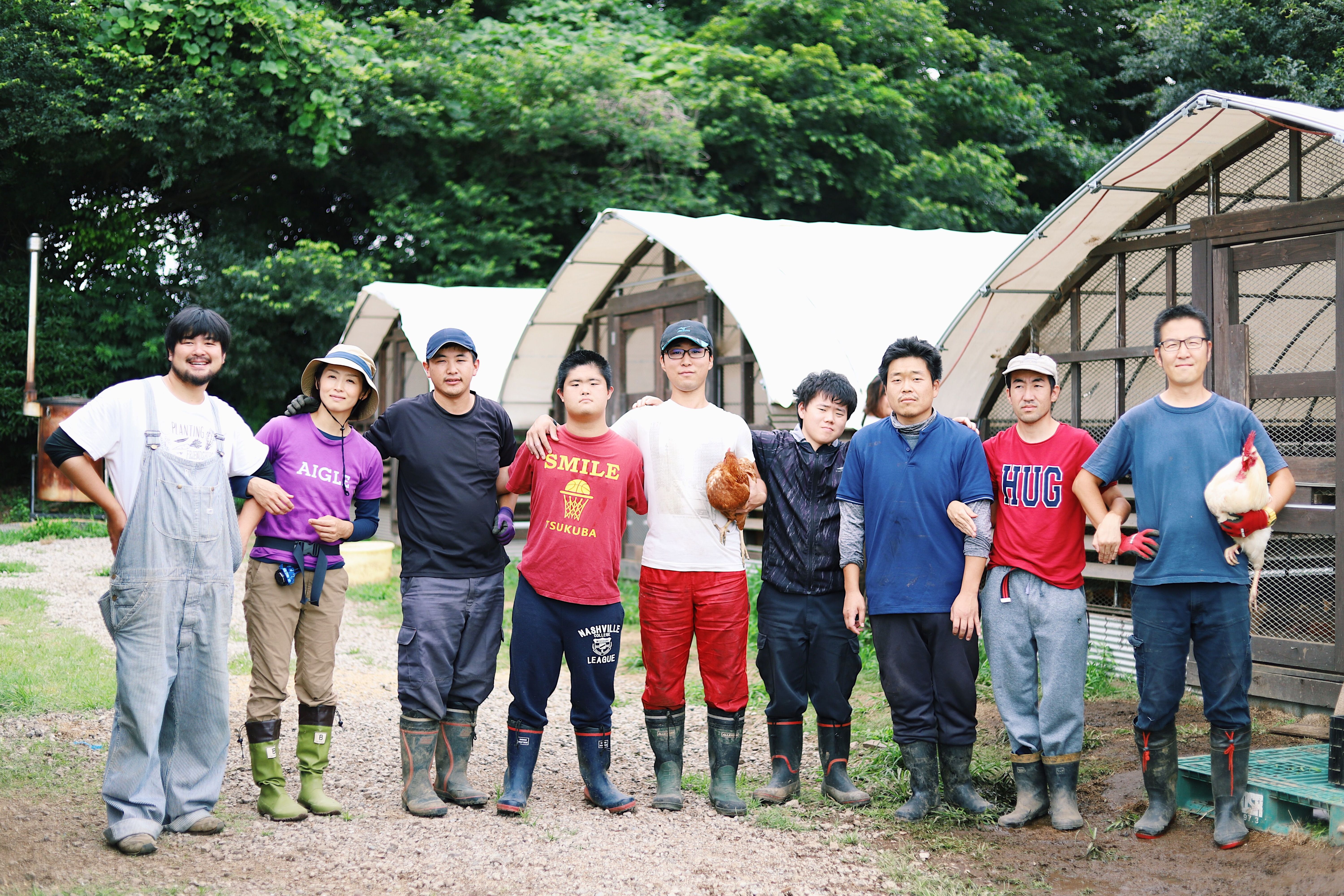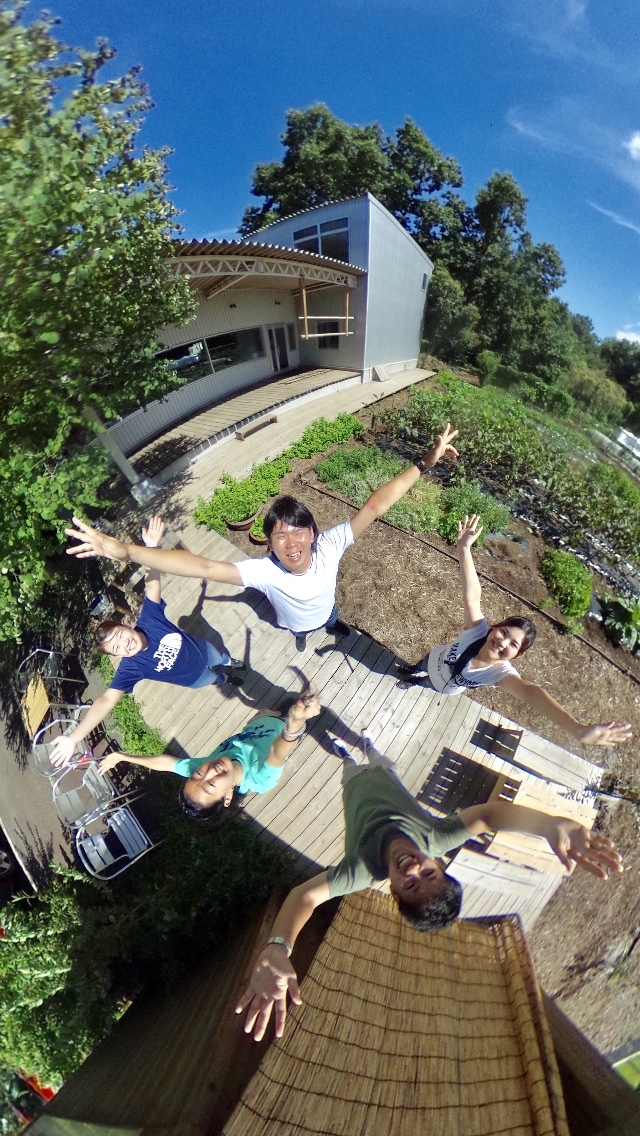NPO Gokigen Farm
NPO Gokigen Farm, one of 2018 FIT For Charity Run beneficiary organisations, grows a wide range of produce in Tsukuba, contributes to the local community through the farming activities of people with disabilities, and aims to create a co-existing society where people can help each other and grow together. We met with Representative Director Fumiya Ito to hear about his story.

FIT: Please tell us about why you started Gokigen Farm.
Ito: When I was a student, I interned as an assistant to a legislator. At that time, the legislator’s interest was in people with disabilities and agriculture, and as I conducted independent research, I had the urge to start a business puts the lives of people with disabilities first. This led to the establishment of the non-profit organisation in 2011.
FIT: Please tell us about when you established the NPO and if you experienced any hardship afterwards.
Ito: The establishment and the first year was difficult but even if it didn’t go well, I continued to work hard and do my best so it didn’t feel like hardship to me. During the second year, the challenges increased, and I had difficultly figuring out how to work with each employee, regardless of whether the employee had disabilities or not. At that time, we started with 5-6 employees. The employees were all older than me and had professional working experience or experience working in welfare services. It was difficult for me to manage the team as I had just graduated from university. So I attended various trainings and actively communicated with the employees, and the team started to work well as we gradually gained the respect and trust of each other.
FIT: We heard that you have expanded the business beyond the farm. Please tell us more about that.
Ito: Back in 2011, we only produced vegetables, but in January 2017 we started producing rice, in January 2018 we opened a restaurant, and in April we started a chicken farm. Gokigen Farm is not just a facility for people with disabilities. We want to continue providing small but impactful businesses, which are valued by our community.
For example, we sell and deliver vegetable boxes directly to our local community. We have not increased the number of farms in order to provide the vegetable boxes outside of our community, but instead we started a chicken farm so that we can include eggs in the vegetable box. Scrap vegetables, rice bran, and rice husks become food for the chickens, instead of being thrown away. Like so, each business is improved and a positive relationship between each business is created. Also, because of the expansion in the types of businesses, and not the amount of work, the workers can now choose their work in accordance to what they are good at or their disabilities. For example, those who like animals can choose to work at the chicken farm and those who have physical disabilities can make decorations for the restaurant.
FIT: We are very impressed that all the businesses are doing very well! Do you have any tips?
Ito: First of all, a good welfare/good support system and a good business are different. Therefore, we always make sure to assign a good instructor. Even if someone who has studied social work is able to provide good welfare at a social welfare facility, in order to build a sustainable “business,” knowledge of that specific business is necessary. Knowledge outside of social work, like an environment where products can be sold, is essential.
To be honest, the first two years, we were figuring out our business through trial and error. For example, even if we prepared the soil well, the vegetables will not grow if the sowing is delayed by ten days. The vegetables will not be viable if the harvest date is off by ten days. Although each process is not difficult, if one process fails, the business fails. Once we assigned a specialised instructor, we were able to get the business on track. However, there are still many things that are not going well. In order to produce vegetables that are able to be sold, we must compete at the same level as agricultural farmers, and in order to compete at that level with people with disabilities we always make sure to assign an instructor. Of course, we cannot depend solely on the instructor. Sometimes we get scolded if we ask too many questions. (laughs)
FIT: Please tell us about your future goals.
Ito: I want to create a community where everyone, from children to seniors, can co-exist. It may sound unrealistic but food is a theme that is deeply related to everyone, regardless of age or gender. We are finding possibilities through our farming activities with diverse people, including people with disabilities. Because we produce a variety of vegetables, we are involved with many people. By delivering directly to our customers, we are also directly involved with our local community. The wooden deck at the restaurant was made by people from the local area. In order to create a community where people with disabilities can live freely, we believe that it is important for us to become a good facility for local people, through many direct relationships with local people. Therefore, I want to expand our business to deepen the value of ourselves, involve the community, and work together while respecting each other.
FIT: Please tell us how you utilized the FIT donation.
Ito: In September 2019, we will start Kurashi-no-Ba (a group home). In order to create a co-existing community, I want to not only work with the local community but live and play as well. hen the way you live changes, the way you think also changes. Traditionally, facilities for people with disabilities have been isolated and had little connection with the local community. Although there are many people with disabilities, because they usually don’t get together with the local people, they are often misunderstood and people with disabilities become isolated. Therefore, we first want to make a meeting ground for people with disabilities and local people. I believe that if we contribute to the community first, the number of connections will slowly increase, people will be able to understand each other, and good relationships will increase. It would be wonderful if we can increase places where everyone can not only support each other but also have fun together.
FIT: If the number of people like you increased, we will be able to create a society where people can help each other, observed not only in social welfare but in all other areas like senior citizens, diversity, employment of foreigners etc. Thank you for your cooperation today!
NPO Gokigen Farm: https://gokigenfarm.com/



